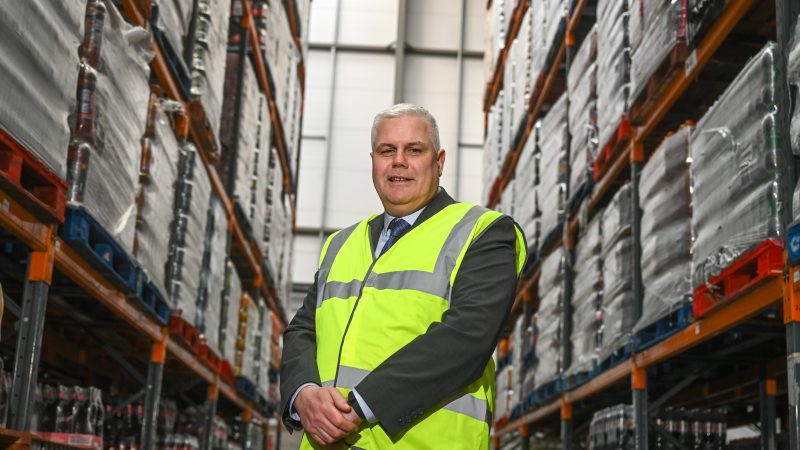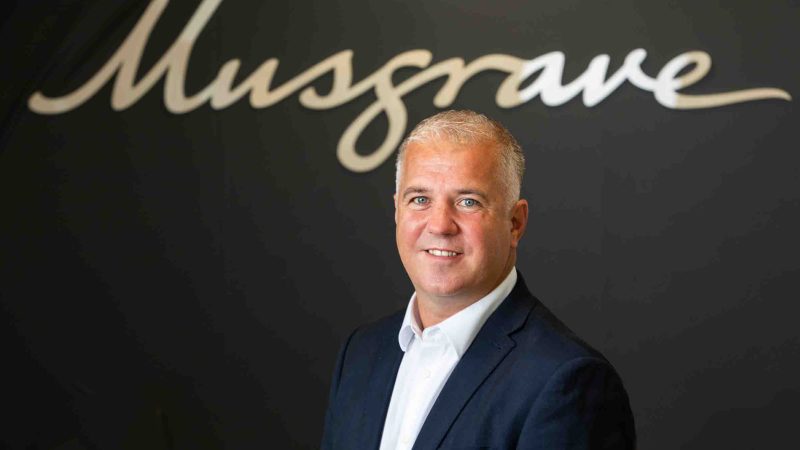Manufacturing global success for Northern Ireland

After a turbulent few years for the manufacturing industry, chief executive for Manufacturing NI, Stephen Kelly tells Neighbourhood Retailer the future is bright but warns investment is needed.
The general consensus among those in the industry is optimistic, with many retailers reporting buoyant sales and some even going as far as to cautiously breathe a sigh of relief.
This positive attitude is reflected in the manufacturing sector as figures released by the Northern Ireland Statistics and Research Agency in December 2017 revealed total sales by companies in Northern Ireland rose by 2.7 per cent to £68.9bn for the year 2016-17.
Sales within NI increased by £829m and are at the highest level since the survey began in 2011, while external sales rose by 4.2 per cent and accounted for over a third of total sales in 2016.
Stephen Kelly, chief executive for Manufacturing NI told Neighbourhood Retailer that he believes the manufacturing industry has weathered the worst of the economic downturn, and is finally coming out the other side after a few difficult years.
“Statistics show record international exports, which has been helped by the change in value of sterling after the referendum.
“Although these figures represent sales from the previous year, we can expect a similarly positive outcome when statistics are released at the end of 2018, as feedback from manufacturers shows that 2017 has been just as busy as the previous twelve months.”
High Employment Rates
And, it’s not just increased trade that the manufacturing industry has to be proud of, as Stephen reports all time high numbers of employment in the sector.
“The general public’s perception of manufacturing is changing,” said Stephen. “Lines of repetitive tasks are a thing of the past in most companies and the ‘clocking in, and clocking out’ culture is also very much a myth.
“The industry is employing skilled workers to operate complex computer programs and more people are starting believe that a job in the manufacturing industry is a good value career.”
Although, Stephen acknowledges that recruitment in the sector is not without its challenges. Like many other industries, manufacturing is not immune to the ever expanding skills gap whereby there are not enough qualified workers to fill valuable roles. He believes this issue can be tackled by promoting apprenticeships to school leavers.
“If you ask 100 parents what their ambitions for their children are, many would reply with careers such as doctor and lawyer. However, not everyone is suited to these paths. The reality is that getting into a good apprenticeship means that young people can earn and learn at the same time without accruing years of student debt.”
Economic Health on the Rise
The Purchasing Managers’ Index, an indicator of economic health in the manufacturing sector, reached a four year high of 58.2 in November 2017.
Stephen said: “Anything over 50 is positive, but November was a promising indicator of solvency. Our firms are confirming that they are continuing to be busy with orders lined up for the future.”
However, Stephen reports a slight downturn in the construction industry, in particular the transportation of materials from NI to Great Britain.
“Every year a large amount of steel and concrete is exported to Great Britain, as local firms win over buyers in the UK with high quality products and competitive prices. Recently construction firms have been reporting that bigger investments have been going to businesses on the mainland, which I believe reflects the mood and sentiment on the mainland in regards to Brexit.”
It doesn’t matter which side of the Brexit debate you straddle, everyone can agree that a good Brexit outcome is key to maintaining and growing the economy.
“A small amount of manufacturers export, but all manufacturers import making it even more imperative that the Government negotiates a good deal for the people of Northern Ireland.
Brexit
“In a survey conducted by Manufacturing NI at the beginning of December, half of firms had made minimal changes or no plans to prepare for Brexit. More worryingly, more than a third of those surveyed are planning on shifting production outside of the UK.
“Three out of four manufacturers said that Brexit will have a negative impact on their business regardless of a good, bad, or no deal outcome.”
The manufacturing industry relies on investment, but uncertainty around Brexit means that there is a lack of confidence required for significant investment to take place.
“Investing in the manufacturing industry isn’t like investing in any other industry,” said Stephen. “Investment can take 20-30 years to yield results, and there isn’t enough confidence to pour money into new markets, buildings, and staff at the moment.”
In 2018, Manufacturing NI will be supporting their members by encouraging the government to negotiate a good Brexit deal for trade in Northern Ireland, as well as campaigning for lower business rates to allow the sector to grow and gain momentum again.
“We need the Executive back up and running to keep business rates down,” Stephen said.
Regardless of a Brexit outcome, the manufacturing trade in Northern Ireland has shown itself to be resilient industry and Stephen believes our leaders are quick and capable of making the best of it.
He said: “This is the time to be looking at our firms who are sitting with 50 employees who really could have 250 employees in a few years. We need to support our rising stars to be internationally successful.
“In Northern Ireland we have a real talent for making and selling things – it is part of our DNA and that’s why manufacturing represents a bigger part of our economy than anywhere else in the UK.
“Recently there have been a number of local firms purchased by international powerhouses China and America. Home grown firms are taking on the world and are winning – a pattern that Manufacturing NI hopes to see continue into 2018 and beyond.”







